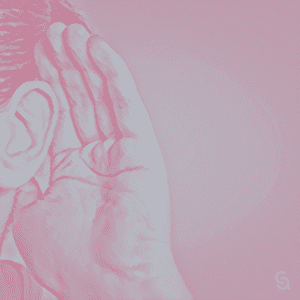As a kid, I was a terrible bully. In 3rd grade, I kidnapped a kid’s blue rock, which he’d brought in for show-and-tell. I left a ransom note that reduced him to a tearful panic, which only made me hate him more. In middle school, I mocked a handful of classmates relentlessly, until one of them spoke to me about my behavior so directly, and so absent of malice, that I had a true come-to-Jesus moment and vowed to become a different person. I’ve spent many years trying not only to make up for the pain I caused others but also to understand where that behavior came from  in the first place.
in the first place.
Why did I try to elevate myself in my own eyes—and in the eyes of the “cool” kids—by pointing out what I considered to be the insufficiencies of the “uncool” kids? It was my understanding that kids who acted badly came from homes where they themselves were bullied or lacked love in some way. Whenever I reported to my mom any kind of bad behavior exhibited by my classmates (I never reported my own, of course), her face would soften with compassion, and she would wonder aloud about what hardships they might be facing at home. But that wasn’t my story: I had all the love and guidance I needed…I was just mean.
The Deeper Need Behind Bullying
It wasn’t until I read G. Willow Wilson’s 2010 memoir, The Butterfly Mosque, that I got any insight into where my bullying might have originated. As an American woman who moved with a friend to Cairo in her 20s, Wilson found herself on the receiving end of unkindness and discrimination from her Egyptian neighbors.
“We are cruelest to those who remind us of our capacity for cruelness,” she writes. “It was this that made [our] relations with our neighbors so bitter: it was clear that they did not like who they became around us…. This is the heart of the clash of civilizations: not the hatred of the Other, but the self-hatred produced by the Other” (all emphases are mine).
I find this statement incredibly profound. And it’s the only theory that has ever resonated with me in my search for understanding on this subject. I did not like who I became in the presence of perceived weakness or differences that disturbed me. I was sickened by my power to hurt others, but instead of using my power to connect, I let self-hatred lead the way.
How Self-Love Can Make Us Kinder
Let’s return to the kid with the blue rock: his voice quivered when he talked, his hands were soft, and he wore the scared expression of a puppy expecting to be whacked at any moment. Thinking back on it, I wouldn’t be at all surprised if he was a gay kid who was, in fact, whacked on a regular basis at home. But instead of inspiring compassion in me, his vulnerability made me uncomfortable. I didn’t see it as a gift but rather as something to be stamped out. And the dark desire I felt in response to his vulnerability (i.e. my own capacity for cruelty) made me want to punish him. And I did.
The inverse of all this is Jesus’ command to love others as we love ourselves. But I’ve always been fascinated by Christ’s apparent assumption that we love ourselves. How many of us have a proper understanding of what it means to love ourselves? It follows that self-love—or lack thereof—would impact our ability to love others. How does framing our core issue as self-hatred affect how we might address the pandemic of othering in this world? I think the implications are worth unpacking.
Take, for example, the NIMBY folks who are protesting the group home where my cognitively disabled friend lives. If I posit that self-loathing is at the core of their lack of compassion, grace, and even common courtesy, what then is at the core of the disgust, judgment, and desire for revenge that I feel towards them?
I’m so grateful I get to live with the doctrine of forgiveness rather than the doctrine of karma.
 Kristyn Komarnicki is the director of dialogue and convening for Christians for Social Action.
Kristyn Komarnicki is the director of dialogue and convening for Christians for Social Action.


